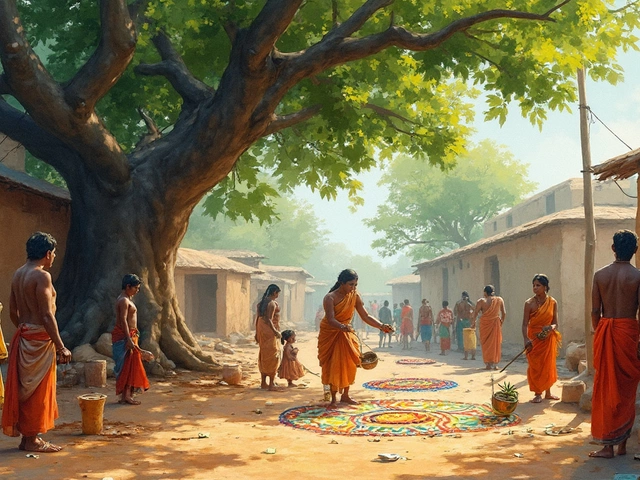Tamil Nadu Death Rituals: Understanding South India's Unique Funeral Traditions
When someone passes away in Tamil Nadu, death isn’t just an end—it’s a transition guided by rituals older than most modern nations. These Tamil Nadu death rituals, a set of deeply rooted Hindu funeral practices specific to the Tamil-speaking regions of South India. Also known as Tamil funeral customs, they blend Vedic chants, family duty, and community support into a single, sacred process. Unlike many places where death is hidden away, in Tamil Nadu, it’s faced openly, with music, fasting, and ritual purity at the center of mourning.
These rituals are shaped by three core traditions: Hindu death rites, the ancient religious framework that dictates how the soul is released from the body, ancestral worship Tamil Nadu, the belief that the dead remain spiritually present and must be honored through regular offerings, and South Indian burial practices, the regional variation where cremation on riverbanks, not burial, is the norm. The body is washed with milk and turmeric, dressed in white or saffron, and placed on a bamboo stretcher. Family members walk behind it, chanting the Thirumanthiram or Om Namah Shivaya, while the eldest son carries a clay pot—symbolizing the soul’s journey. The cremation happens before sunset, often on the banks of the Kaveri or Vaigai rivers, and ashes are scattered in sacred waters.
What makes these rituals different isn’t just the steps—it’s the rhythm. There’s no rush to bury the grief. For thirteen days, the family observes shraddha, eating simple meals, avoiding celebrations, and inviting Brahmins to recite verses. On the tenth day, they offer rice balls (pindam) to feed the soul’s journey. Even today, many villages still hold community feasts called maatru thiruvizha, where neighbors bring food to support the grieving. These aren’t just traditions—they’re social contracts that hold families together when they’re most broken.
While modern cities like Chennai may use electric crematoriums and shorter mourning periods, rural areas still follow the old ways with quiet pride. You’ll see grandmothers reciting the same prayers their mothers did, and young men carrying pots down dusty roads, not because it’s required, but because it feels right. These rituals don’t just honor the dead—they remind the living who they are, where they come from, and how deeply connected they are to those who came before.
Below, you’ll find real stories, detailed guides, and firsthand accounts of how these rituals unfold—from the moment the last breath is taken to the final offering made at the river’s edge. No fluff. No myths. Just what people actually do, say, and believe in Tamil Nadu when death comes home.





